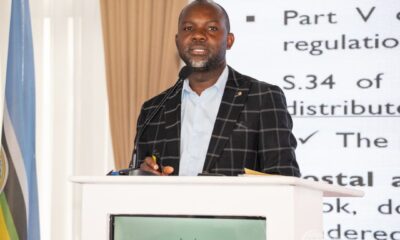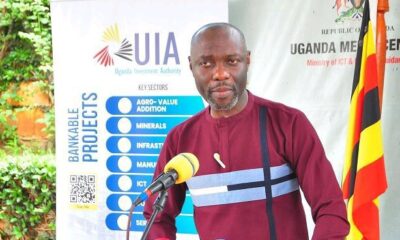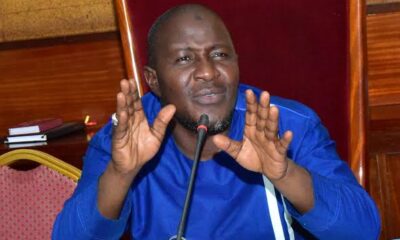News
“Anyone Without Brains Or Training Can Be A Lawyer In The Military Court, They Are So Unqualified” CJ Owiny Dollo Breaks His Silence

The Supreme Court of Uganda has ruled that the General Court Martial (GCM) does not have the authority to try civilians. This decision upholds a 2021 Constitutional Court ruling and could impact individuals currently imprisoned under military justice, including opposition leader Dr. Kizza Besigye, his associate Obeid Lutale, and their lawyer Eron Kiiza. The ruling marks a significant shift in the judicial landscape, reinforcing the principle that military courts should not handle civilian cases.
Chief Justice Alfonse Owiny-Dollo, along with other justices, ruled that the GCM serves solely as a disciplinary body for Uganda People’s Defence Forces (UPDF) personnel. It cannot function as a criminal court for civilians. Justice Elizabeth Musoke further clarified that the General Court Martial is a military organ with limited jurisdiction and does not possess general judicial functions. This decision reinforces the separation between military and civilian judicial systems.
Additionally, the ruling struck down sections of the UPDF Act that had previously allowed military courts to prosecute civilians. Justice Percy Night Tuhaise emphasized that the responsibility for handling criminal cases lies with the Director of Public Prosecutions (DPP) to ensure justice is served properly. Justice Catherine Bamugemereire also pointed out that the GCM lacks independence and impartiality, two essential principles for a legitimate court. She highlighted that military judges do not have the necessary legal training to conduct criminal trials, further questioning the fairness of military court proceedings.
During the ruling, Chief Justice Owiny-Dollo made a strong statement regarding the qualifications of military court officials. He argued that anyone without professional legal training could be appointed as a judge in army courts. Comparing this to an untrained lawyer performing surgery, he stated, “This is like picking any lawyer from town and asking them to perform surgery in a theatre, yet they might not even know the difference between a kidney and a liver.” This analogy cast doubt on the credibility of military court rulings and the expertise of those presiding over them.
Owiny-Dollo also addressed public concerns regarding delays in the judiciary, particularly in politically sensitive cases. He defended the judiciary’s role and encouraged constructive criticism rather than unfair attacks on judges. In response to claims that the Supreme Court had taken too long to decide on the matter, he clarified that the ruling had been reached in eight months, not four years, as some had suggested.
This landmark ruling has significant implications for Uganda’s legal system, ensuring that civilian cases are handled by competent judicial bodies rather than military tribunals. What are your thoughts on this matter? Feel free to share your opinions in the comment section, and visit the following link for more information. Don’t forget to follow me for more updates.




















